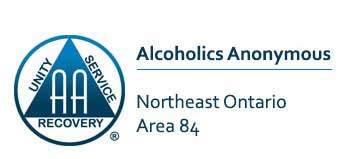Are you new to Alcoholics Anonymous? Welcome!
AA meetings come in all sizes and formats. What is true for all of them is that they are inclusive (no matter who or how you are) and that you are not required to do or say anything you are not comfortable with. In time, you will likely want to share; it helps you as well as others.
Here are some of the more common meeting formats:
- Speaker Meeting
One (or sometimes more) member(s) share their story, their journey. "What it was like, what happened, and what it is like now" - Discussion Meeting
Discussion meetings typically focus on either specific literature (The big book of AA or the "12 & 12" etc.) or topics suggested by members in attendance. Generally, you are free to share whatever is on your mind, so long as it pertains to alcoholism; - Open Meeting
An open meeting can be a speaker meeting or a discussion meeting. It simply means that anyone is welcome, alcoholic or not; - Closed Meeting
A closed meeting can also be a speaker or discussion meeting. However, it is intended for members of Alcoholics Anonymous - for those with a desire to stop drinking.
During and after a Meeting
Whether it is a speaker or discussion meeting, we do not interrupt or comment on what we are hearing. If we would like to address something somebody said, we can do so after the meeting. Members usually gather for a last cup of coffee or tea and socialize for a few minutes before heading out. Most meetings run for about an hour.
Anonymity
In short: What you hear and who you see stays in the rooms of AA. As explained on the official AA website:
If we look at the history of A.A., from its beginning in 1935 until now, it is clear that anonymity serves two different yet equally vital functions:
- At the personal level, anonymity provides protection for all members from identification as alcoholics, a safeguard often of special importance to newcomers.
- At the public level of press, radio, TV, films and other media technologies such as the Internet, anonymity stresses the equality in the Fellowship of all members by putting the brake on those who might otherwise exploit their A.A. affiliation to achieve recognition, power, or personal gain.
When using digital media, A.A. members are responsible for their own anonymity and that of others. When we post, text, or blog, we should assume that we are publishing at the public level. When we break our anonymity in these forums, we may inadvertently break the anonymity of others.
Safety
It is hoped that our common suffering as alcoholics and our common solution in A.A. will transcend most issues and curtail negative behaviors that could jeopardize the safety of anyone attending an A.A. meeting. Nevertheless, Alcoholics Anonymous is a microcosm of the larger society we exist in. As such, problems found in the outside world can also make their way into the rooms of A.A.
Please take the precautions you feel are necessary to ensure your own personal safety, for example, walking to your car in a group after a meeting. If a situation should arise where someone feels their safety is in jeopardy, or the situation breaches the law, the individuals involved should take appropriate action. Calling the proper authorities does not go against any A.A. Traditions and is recommended when someone may have broken the law or endangered the safety of another person.




